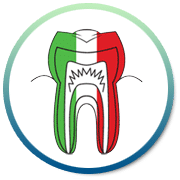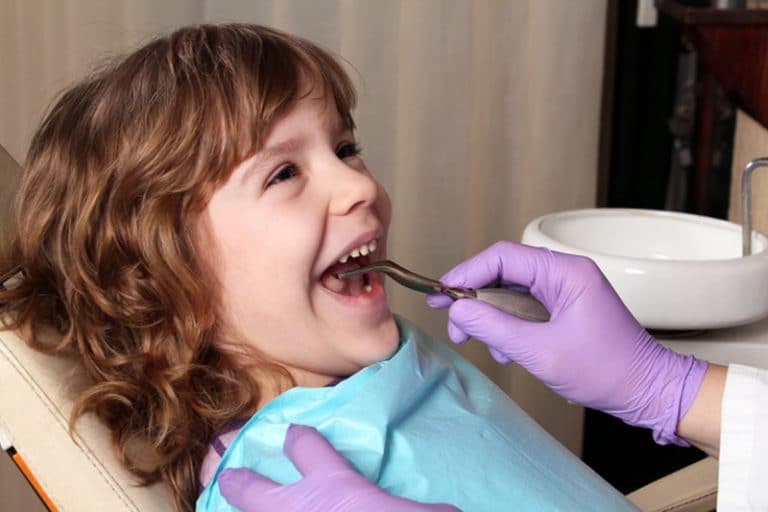If you’re raising kids in Westminster, you already juggle snacks, sports, assignments, and the occasional lost tooth. We’re here to make the dental part easier. At Bertagnolli Dental, we’ve helped local families build healthy habits that prevent most childhood dental problems before they start. Below, we break down the five issues we see most often and how you can keep your child’s smile comfortable and cavity-free, from preschool to preteen. Denver families will find these tips helpful too, but our focus is right here at home in Westminster.
Key Takeaways
- To prevent the most common dental issues in children, prioritize twice-daily fluoride brushing, daily flossing once teeth touch, smarter snacks, and 6‑month checkups with sealants on first and second molars.
- Tackle gingivitis early by brushing along the gumline for a full two minutes, flossing daily (use threaders or a water flosser with braces), and scheduling professional cleanings to remove tartar.
- Curb malocclusion risks by weaning thumb and pacifier habits by age 3–4, protecting space after early tooth loss, and booking an orthodontic evaluation around age 7.
- Prevent and manage dental trauma with mouthguards and helmets, and if a permanent tooth is knocked out, place it back in the socket or store it in milk and get dental care within 30–60 minutes (do not reinsert a baby tooth).
- Reduce tooth sensitivity by limiting acidic drinks to mealtimes, using fluoride or desensitizing toothpaste, considering a nightguard for grinding, and adding sealants or protective coatings when needed.
Why Children Are Prone to Dental Issues
Kids’ mouths change fast. New teeth erupt, jaws grow, and habits are still forming. That mix creates a few predictable risks:
- Developing hygiene skills: Little hands miss spots. Plaque hangs out around the gumline and between molars.
- Frequent snacking: Crackers, gummies, and sports drinks feed cavity-causing bacteria.
- Enamel that’s still maturing: New molars and incisors can be more vulnerable to decay right after they erupt.
- Habits that shift the bite: Thumb sucking, pacifiers, or mouth breathing can influence jaw growth.
- Active lifestyles: Bikes, trampolines, and team sports raise the chance of dental injuries.
In Westminster’s dry climate, we also see more dry-mouth moments during sports and outdoor play. Less saliva means less natural protection against cavities. Simple fixes like water breaks and sugar-free gum (for older kids) help. We design prevention plans at Bertagnolli Dental that fit your child’s age, habits, and activities so problems don’t snowball.
Tooth Decay (Early Childhood Caries) and How to Prevent It
Tooth decay is the number one dental issue in children. Bacteria turn sugars into acids that soften enamel, especially on back molars and between teeth.
What raises the risk:
- Frequent sipping of juice, soda, or sweetened milk
- Grazing on sticky snacks (fruit snacks, granola bars)
- Incomplete brushing and skipped flossing
- Bedtime bottles or cups with anything but water
How we prevent cavities in Westminster kids:
- Smart daily care
- Under age 3: a thin smear of fluoride toothpaste twice a day
- Ages 3 and up: a pea-size amount of fluoride toothpaste twice a day
- Floss once daily as soon as teeth touch
- Help or closely supervise brushing until at least age 7–8
- Better snack routines
- Offer water between meals: keep juice and chocolate milk as occasional treats
- Pair carbs with protein (cheese, nuts if safe, yogurt) to balance acids
- Save sweets for mealtimes when saliva flow is higher
- Professional protection
- Regular exams and cleanings every six months, or as recommended
- Fluoride varnish for extra enamel strength
- Dental sealants on permanent molars, usually around ages 6 and 12
- Local tip
Many Front Range communities, including Westminster and Denver, provide fluoridated water. If your family mainly drinks bottled or filtered water, ask us whether your child is getting enough fluoride.
If a cavity does develop, early care is easier on your child and preserves more tooth structure. Our Westminster team at Bertagnolli Dental offers gentle restorative options, and for anxious kiddos, we can discuss safe sedation choices so visits feel manageable.
Gum Disease (Gingivitis) and How to Prevent It
Gingivitis shows up as red, puffy gums that bleed with brushing or flossing. It’s common in kids and tweens, especially around braces.
Why it happens:
- Plaque sits at the gumline and hardens into tartar
- Hormonal shifts in preteens make gums more reactive
- Braces and retainers create extra nooks for plaque
Preventive steps that work:
- Brush for two full minutes, twice a day, focusing on the gumline
- Floss daily: floss threaders or water flossers help with braces
- Rinse with a kid-friendly fluoride mouthwash if recommended
- Professional cleanings to remove tartar you can’t reach at home
Spotting early warning signs and adjusting technique saves kids from sore gums and bad breath. We coach brushing skills chairside at Bertagnolli Dental so kids leave with a routine they can actually do.
Malocclusion and Harmful Habits—Prevention Tips
Bite and alignment issues (malocclusion) can form when habits linger or teeth erupt out of sequence.
Common triggers:
- Thumb or finger sucking after age 3–4
- Extended pacifier use
- Early loss of baby teeth from decay or injury
- Mouth breathing from allergies or enlarged tonsils
What we recommend:
- Gentle habit weaning by age 3: praise and small rewards beat scolding
- Talk with us about habit appliances only if needed
- Protect space after early tooth loss to guide permanent teeth
- Consider an orthodontic evaluation around age 7 to catch growth issues early
A small course correction now can prevent longer, more complex orthodontic treatment later. We coordinate closely with local orthodontists in Westminster and Denver when that makes sense.
Dental Trauma—What to Do and How to Prevent It
Active kids take tumbles. Knowing what to do in the first few minutes can save a tooth.
Prevention first:
- Have your child wear a custom or boil-and-bite mouthguard for contact and stick sports
- Helmets for bikes, scooters, and skating
- No running with objects in the mouth (pencils, toothbrushes)
If a tooth injury happens:
- Chipped or fractured tooth: Save any pieces. Rinse the mouth with lukewarm water. Call us.
- Tooth knocked loose or pushed out of position: Don’t force it. Contact us promptly.
- Permanent tooth knocked out: Handle it by the crown, not the root. Rinse gently if dirty. Try to place it back in the socket and have your child bite on gauze. If you can’t, store it in milk or saline and get to us within 30–60 minutes.
- Baby tooth knocked out: Do not reinsert. Call for guidance.
We keep room for same-day visits at Bertagnolli Dental for dental emergencies, because timing matters. If you’re in Westminster or nearby Denver and you’re unsure whether it’s urgent, call, we’ll talk you through it while you head in.
Tooth Sensitivity and Enamel Defects—Prevention and Care
Kids can feel zings of pain with cold water or ice cream. Sensitivity often comes from thin or weakened enamel, tiny cracks, gum recession near a tooth, or natural enamel defects.
What makes sensitivity more likely:
- Frequent acidic drinks (sports drinks, sodas, flavored waters)
- Teeth grinding during sleep
- Developmental enamel issues on first molars and incisors
How we help kids stay comfortable:
- Daily fluoride toothpaste: for stubborn sensitivity, we may suggest a desensitizing paste
- Reduce acidic drinks to mealtimes and rinse with water afterward
- Nightguards for older kids or teens who grind
- Sealants or protective coatings on sensitive molars
- Regular checkups so we can catch early enamel changes and step in quickly
If sensitivity points to a deeper problem like a cracked tooth or deep decay, we’ll discuss the least invasive fix first. Our team at Bertagnolli Dental also offers gentle root canal therapy when a nerve is involved, but that’s typically a last resort after other options.
Conclusion
Healthy habits, a little planning, and consistent checkups go a long way. For Westminster families, we make prevention the path of least resistance: clear guidance, comfortable visits, and age-appropriate tools that kids actually use. And if your child is nervous, we can talk about sedation options that keep care calm and safe.
Ready to get started? Schedule a visit with Bertagnolli Dental in Westminster. We’re close to Denver, we treat kids with the same care we’d want for our own, and we’re happy to map out a simple plan for your child’s next stage, sealants, fluoride, mouthguards, and everything in between. Call or book online, and let’s protect that smile.
Frequently Asked Questions
What are the most common dental issues in children?
The most common dental issues in children are tooth decay (early childhood caries), gingivitis, malocclusion from habits or early tooth loss, dental trauma from sports or falls, and tooth sensitivity or enamel defects. Consistent brushing and flossing, smart snacks, fluoride, sealants, mouthguards, and regular checkups prevent most problems before they start.
How can I prevent tooth decay in my child at home and the dentist?
Brush twice daily with fluoride toothpaste (a smear under age 3, a pea-size amount ages 3+), floss once teeth touch, and keep juice or sweets to mealtimes. Offer water between meals and pair carbs with protein. At the dentist, schedule six‑month exams, fluoride varnish, and sealants on permanent molars.
What should I do if my child knocks out a permanent tooth?
Handle the tooth by the crown, not the root. Rinse gently if dirty. Try to reinsert it and have your child bite on gauze. If that’s not possible, place it in milk or saline. See a dentist within 30–60 minutes. Do not reinsert a baby tooth; call your dentist for guidance.
When should a child stop thumb-sucking, and when is an orthodontic check useful?
Aim to gently wean thumb or pacifier habits by ages 3–4 using praise and small rewards. If early baby-tooth loss or mouth breathing occurs, ask your dentist about space maintenance or addressing airway issues. An initial orthodontic evaluation around age 7 helps spot growth or alignment concerns early.
Is fluoridated water safe and effective for kids?
Yes. Community water fluoridation is safe and helps prevent cavities by strengthening enamel. If your family mainly uses bottled or heavily filtered water, fluoride exposure may be lower. Ask your dentist whether your child needs topical fluoride, varnish, or supplements based on local water and risk factors.
How often should kids see the dentist, and when should the first visit be?
Most children benefit from dental checkups every six months, though high‑risk kids may need more frequent visits. The first dental visit should happen by age 1 or within six months of the first tooth. Early care builds habits and helps prevent common dental issues in children before they become bigger problems.

